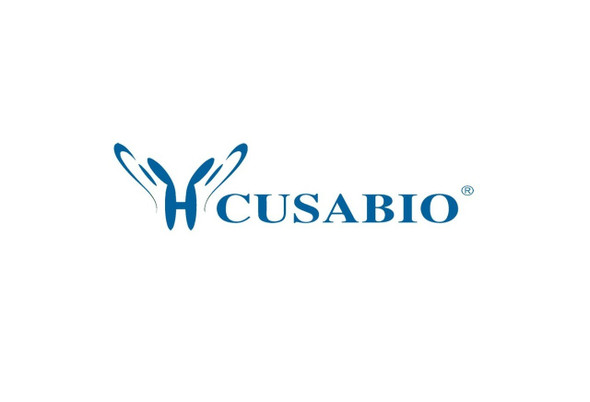Cusabio Human Recombinants
Recombinant Human Histone-lysine N-methyltransferase SETDB1 (SETDB1) | CSB-EP619960HU
- SKU:
- CSB-EP619960HU
- Availability:
- 13 - 23 Working Days
Description
Recombinant Human Histone-lysine N-methyltransferase SETDB1 (SETDB1) | CSB-EP619960HU | Cusabio
Alternative Name(s): ERG-associated protein with SET domain
Gene Names: SETDB1
Research Areas: Epigenetics and Nuclear Signaling
Organism: Homo sapiens (Human)
AA Sequence: MSSLPGCIGLDAATATVESEEIAELQQAVVEELGISMEELRHFIDEELEKMDCVQQRKKQLAELETWVIQKESEVAHVDQLFDDASRAVTNCESLVKDFYSKLGLQYRDSSSEDESSRPTEIIEIPDEDDDVLSIDSGDAGSRTPKDQKLREAMAALRKSAQDVQKFMDAVNKKSSSQDLHKGTLSQMSGELSKDGDLIVSMRILGKKRTKTWHKGTLIAIQTVGPGKKYKVKFDNKGKSLLSGNHIAYDYHPPADKLYVGSRVVAKYKDGNQVWLYAGIVAETPNVKNKLRFLIFFDDGYASYVTQSELYPICRPLKKTWEDIEDISCRDFIEEYVTAYPNRPMVLLKSGQLIKTEWEGTWWKSRVEEVDGSLVRILFLVLFFSTILEAEVGGGGT
Source: E.coli
Tag Info: N-terminal GST-tagged
Expression Region: 1-397aa
Sequence Info: Full Length of Isoform 2
MW: 71.7 kDa
Purity: Greater than 90% as determined by SDS-PAGE.
Relevance: Histone methyltransferase that specifically trimethylates 'Lys-9' of histone H3. H3 'Lys-9' trimethylation represents a specific tag for epigenetic transcriptional repression by recruiting HP1 (CBX1, CBX3 and/or CBX5) proteins to methylated histones. Mainly functions in euchromatin regions, thereby playing a central role in the silencing of euchromatic genes. H3 'Lys-9' trimethylation is coordinated with DNA methylation. Probably forms a complex with MBD1 and ATF7IP that represses transcription and couples DNA methylation and histone 'Lys-9' trimethylation. Its activity is dependent on MBD1 and is heritably maintained through DNA replication by being recruited by CAF-1. SETDB1 is targeted to histone H3 by TRIM28/TIF1B, a factor recruited by KRAB zinc-finger proteins. Probably forms a corepressor complex required for activated KRAS-mediated promoter hypermethylation and transcriptional silencing of tumor suppressor genes (TSGs) or other tumor-related genes in colorectal cancer (CRC) cells. Also required to maintain a transcriptionally repressive state of genes in undifferentiated embryonic stem cells (ESCs). Associates at promoter regions of tumor suppressor genes (TSGs) leading to their gene silencing . The SETDB1-TRIM28-ZNF274 complex may play a role in recruiting ATRX to the 3'-exons of zinc-finger coding genes with atypical chromatin signatures to establish or maintain/protect H3K9me3 at these transcriptionally active regions
Reference: "Prediction of the coding sequences of unidentified human genes. II. The coding sequences of 40 new genes (KIAA0041-KIAA0080) deduced by analysis of cDNA clones from human cell line KG-1." Nomura N., Nagase T., Miyajima N., Sazuka T., Tanaka A., Sato S., Seki N., Kawarabayasi Y., Ishikawa K., Tabata S. DNA Res. 1:223-229(1994)
Storage: The shelf life is related to many factors, storage state, buffer ingredients, storage temperature and the stability of the protein itself. Generally, the shelf life of liquid form is 6 months at -20?/-80?. The shelf life of lyophilized form is 12 months at -20?/-80?.
Notes: Repeated freezing and thawing is not recommended. Store working aliquots at 4? for up to one week.
Function: Histone methyltransferase that specifically trimethylates 'Lys-9' of histone H3. H3 'Lys-9' trimethylation represents a specific tag for epigenetic transcriptional repression by recruiting HP1 (CBX1, CBX3 and/or CBX5) proteins to methylated histones. Mainly functions in euchromatin regions, thereby playing a central role in the silencing of euchromatic genes. H3 'Lys-9' trimethylation is coordinated with DNA methylation. Probably forms a complex with MBD1 and ATF7IP that represses transcription and couples DNA methylation and histone 'Lys-9' trimethylation. Its activity is dependent on MBD1 and is heritably maintained through DNA replication by being recruited by CAF-1. SETDB1 is targeted to histone H3 by TRIM28/TIF1B, a factor recruited by KRAB zinc-finger proteins. Probably forms a corepressor complex required for activated KRAS-mediated promoter hypermethylation and transcriptional silencing of tumor suppressor genes (TSGs) or other tumor-related genes in colorectal cancer (CRC) cells
Involvement in disease:
Subcellular Location: Nucleus, Chromosome
Protein Families: Class V-like SAM-binding methyltransferase superfamily, Histone-lysine methyltransferase family, Suvar3-9 subfamily
Tissue Specificity: Widely expressed. High expression in testis.
Paythway: Signalingpathwaysregulatingpluripotencyofstemcells
Form: Liquid or Lyophilized powder
Buffer: If the delivery form is liquid, the default storage buffer is Tris/PBS-based buffer, 5%-50% glycerol. If the delivery form is lyophilized powder, the buffer before lyophilization is Tris/PBS-based buffer, 6% Trehalose, pH 8.0.
Reconstitution: We recommend that this vial be briefly centrifuged prior to opening to bring the contents to the bottom. Please reconstitute protein in deionized sterile water to a concentration of 0.1-1.0 mg/mL.We recommend to add 5-50% of glycerol (final concentration) and aliquot for long-term storage at -20?/-80?. Our default final concentration of glycerol is 50%. Customers could use it as reference.
Uniprot ID: Q15047
HGNC Database Link: HGNC
UniGene Database Link: UniGene
KEGG Database Link: KEGG
STRING Database Link: STRING
OMIM Database Link: OMIM









